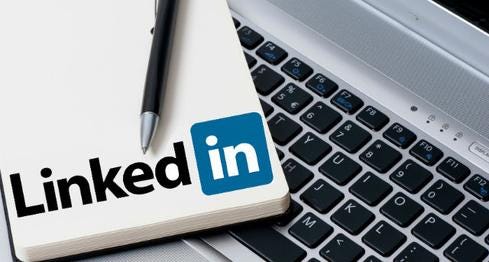LinkedIn will replace its own business card scanner with Evernote's digitizing feature. Here's what you need to know.


LinkedIn Tips: 10 Steps To A Stronger Profile
LinkedIn Tips: 10 Steps To A Stronger Profile (Click image for larger view and slideshow.)
Do you have stacks of business cards lying around? Evernote wants to help you organize them. On Wednesday the company announced a partnership with LinkedIn that will improve business card scanning and make it easier to digitize, archive, and organize your contacts.
Evernote's card-scanning service, which it introduced to iOS last year, pulls in additional information from LinkedIn's 300 million members. To start, open the camera mode in Evernote's iOS app. An update released yesterday no longer requires you to tap to take a photo -- the app will automatically snap the picture once the business card is properly aligned. Once it digitizes the information, Evernote will surface profile information from LinkedIn's 300 million members.
"Evernote can now automatically build a content-rich note around every business card you scan," the company said in an announcement. "With full contact information, a link to their current LinkedIn profile, and a photo, plus a section for notes, business cards become searchable contacts in Evernote."
[Improve your LinkedIn profile and position yourself for what's next. Read LinkedIn Tips: 10 Steps To A Stronger Profile.]
As part of the deal, LinkedIn will end CardMunch, a free scanning service that the company acquired in 2011. At the time, the app was the first of its kind, but LinkedIn failed to keep it current and pushed out only one update. In December, users complained that the app repeatedly crashed, calling into question whether LinkedIn had abandoned it.
While LinkedIn's CardMunch app merely transformed business card information into another contact in your phone, the Evernote/LinkedIn partnership makes this information much more useful. The business card acts as a visual marker in Evernote when you take notes during meetings, add documents, and forward emails from your new contact into a notebook, for example.
Existing CardMunch users have two options: You can either transfer your existing scanned business cards into Evernote and receive two free years of the service, or you can export your CardMunch data to a file, which will include scanned images.
LinkedIn members who don't use CardMunch will receive free Evernote business card scanning for one year if they connect their LinkedIn account to Evernote, the company said in a statement. Otherwise, the scanning service will require a premium Evernote account, which costs $5 per month.
CardMunch is the latest casualty in LinkedIn's attempt to refocus its business. In a blog post in February, the company explained it would shutter some features to focus on "a few big bets." In March, the company ended LinkedIn Intro, a controversial feature that connected LinkedIn to your iPhone's email inbox. Last month it shut down Slidecast, which let SlideShare members upload presentations with audio, and it discontinued LinkedIn iPad apps on iOS versions older than 6.0.
Evernote's card scanning feature is available only for iOS, though the company said Android integration is coming soon.
Can the trendy tech strategy of DevOps really bring peace between developers and IT operations -- and deliver faster, more reliable app creation and delivery? Also in the DevOps Challenge issue of InformationWeek: Execs charting digital business strategies can't afford to take Internet connectivity for granted.
About the Author(s)
You May Also Like







